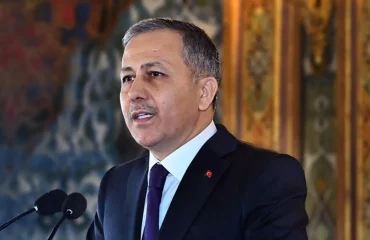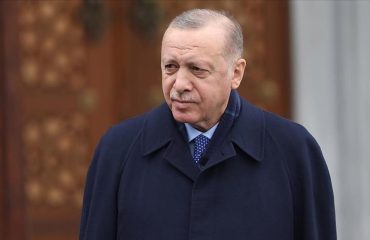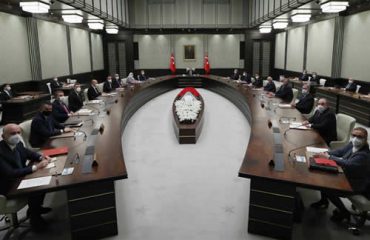• A test with polls: Mirror, mirror on the wall…
As Turkey is heading for the March 31 local elections, President Recep Tayyip Erdoğan said that he no longer trusted public opinion polls. Before this new line, he has been denouncing opposition parties as collaborators of terrorism. According to Erdoğan, polling companies which used to show his ruling Justice and Development Party (AK Parti) as keeping or advancing its position up until this election, are no longer telling the truth.
Before Erdoğan’s move to discredit polling companies, pollsters had revealed their January results. Among them were ORC, MAK and PollMark, which had relatively accurate results in recent elections and referendums. The impression from those results showed that in Ankara, AK Parti candidate Mehmet Özhaseki was losing ground against the Republican People’s Party’s (CHP) Mansur Yavaş. In İzmir the pollsters say, the CHP candidate Tunç Soyer is at least 10 points ahead of the AK Parti Candidate Nihat Zeybekçi. There is a possibility that AK Party’s alliance with the Nationalist Movement Party (MHP) can lose two big cities like Bursa and Adana. In Istanbul, AK Parti’s votes increased some 3 per cent above the CHP candidate Ekrem İmamoğlu, only after Binali Yıldırım was asked by Erdoğan to resign from the Speaker of Parliament post and became the AK Parti candidate. The pollsters claim that the overall AK Parti votes have dropped below 40 per cent.
Perhaps those forecasts upset Erdoğan and shook his belief in polling companies.
In fact, it was Erdoğan who started to use public opinion polls extensively in spotting the needs of people and policy-making for his party. He partly owed his success in politics to this research-based approach, from his election as mayor of Istanbul in the mid-1990s to the founding of AK Parti in 2001 and its election victory in 2002.
Following Erdoğan’s instructions, AK Parti HQ used to commission at least three credible pollsters and get their averages to set policymaking priorities. Then Erdoğan, with his political wit and ability to reduce every complicated problem into a one-degree linear equation with an able traders speed, would decide on the theme of the following election or referendum.
The only exception to that strategy was the June 7, 2015 election. There, Erdoğan tried to solve two systemic equations in one move: shifting to a presidential system and pursuing a political settlement to the Kurdish-problem related terrorism. Despite pollsters warning that his party’s nationalist-conservative vote base would not be happy about the latter, he went through with it. As a result, AK Parti lost the Parliamentary majority. Thanks to the MHP leader’s immediate help on election night and subversive moves by the outlawed Kurdistan Workers’ Party (PKK), Erdoğan dumped the “dialogue” policy and brought the presidential system to Turkey.
But why has Erdoğan stopped believing in polls and polling companies now?
Can it be because pollsters, even those new ones that focus on making money from AK Parti, fail to display the desired level of popular support? Or because they started to say that the support for Erdoğan, even with the MHP’s backing, falls below the 52 per cent of last year, and even below 50 per cent?
It is true that there is an inflation of polling companies. Some of them reportedly make makeshift reports to get money from smaller AK Parti municipalities and candidates. But it is also true that AK Parti is responsible for that. For years, reporters asked successive CHP leaders Deniz Baykal and Kemal Kılıçdaroğlu and got the same answer: the CHP did not commission any polls. Perhaps they could have better election results if they did, but they didn’t.
There is also a media dimension of this debate. It is generally assumed that reporting poll results in the media would influence voter behavior. But that is true when media has penetration and reliability. According to recent surveys, Turkish media today is at the bottom of the confidence list for Turkish people.
Yet again, by saying that he lost confidence in polls, Erdoğan, in fact, indirectly tells media outlets owned by industrial groups close to him (90 per cent according to current estimates) that he doesn’t want to see poll results in the media. The Turkish media today, in Erdoğan’s orbit, is mostly addressing the potential AK Parti voters anyway.
With his latest statement, Erdoğan in a way said that polling companies have no use left for him in politics. As a result, most of those who have been established and rooted before the AK Parti could stay and those who live like parasite life forms out of AK Parti could soon go. And let’s watch and see which ones will stay and which ones will go in Turkish media after the elections.
Made with ♥ by tbtcreative.com © 2022 yetkinreport.com All rights reserved.
Yetkin Report · Help · User Agreement · Legal


